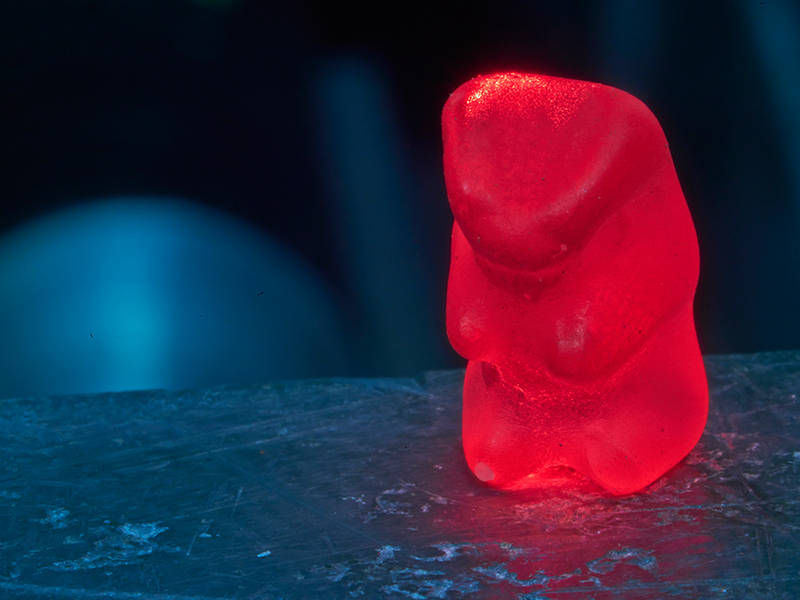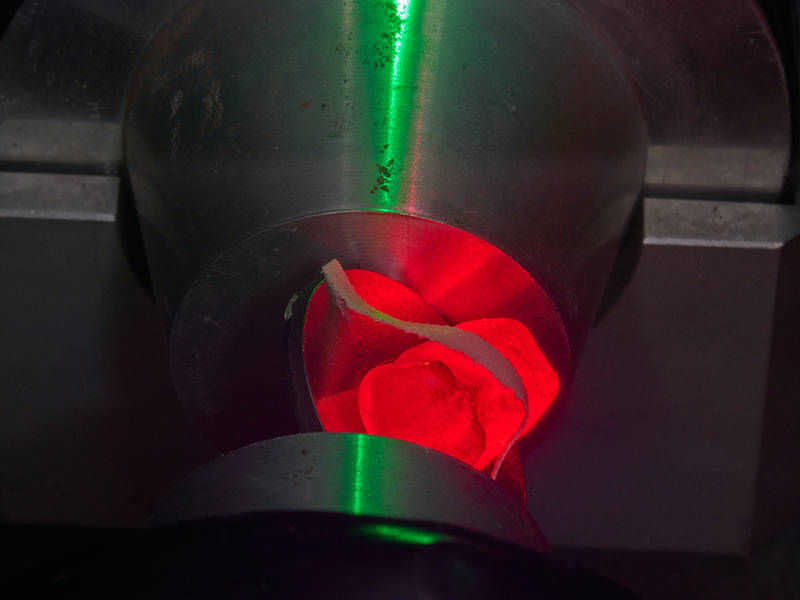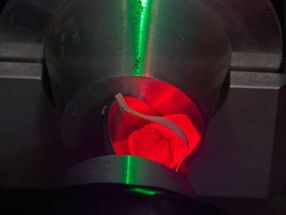Gummy bears under antiparticle fire
Positrons answer questions on targeted release of medication
Gelatin is used in the pharmaceutical industry to encapsulate active agents. It protects against oxidation and overly quick release. Tiny pores in the material have a significant influence on this, yet they are difficult to investigate. In experiments on gummy bears, researchers at Technische Universität München (TUM) have now transferred a methodology to determine the free volume of gelatin preparations.

Gummy bear on the experimental set-up. To prevent color influences, the researchers used red gummy bears only.
Wenzel Schürmann / TUM

The experimental set-up with a fixated gummy bear.
Wenzel Schürmann / TUM


Custom-tailored gelatin preparations are widely used in the pharmaceutical industry. Medications that do not taste good can be packed into gelatin capsules, making them easier to swallow. Gelatin also protects sensitive active agents from oxidation. Often the goal is to release the medication gradually. In these cases slowly dissolving gelatin is used.
Nanopores in the material play a significant role in all of these applications. “The larger the free volume, the easier it is for oxygen to penetrate it and harm the medication, but also the less brittle the gelatin,” says PD Dr. Christoph Hugenschmidt, a physicist at TU München.
However, characterizing the size and distribution of these free spaces in the unordered biopolymer is difficult. A methodology adapted by the Garching physicists Christoph Hugenschmidt and Hubert Ceeh provides relief. “Using positrons as highly mobile probes, the volume of the nanopores can be determined, especially also in unordered systems like netted gelatins,” says Christoph Hugenschmidt.
Positrons are the antiparticles corresponding to electrons. They can be produced in the laboratory in small quantities, as in this experiment, or in large volumes at the Heinz Maier Leibnitz Research Neutron Source (FRM II) of the TU München. If a positron encounters an electron they briefly form an exotic particle, the so-called positronium. Shortly after it annihilates to a flash of light.
To model gelatin capsules that slowly dissolve in the stomach, the scientists bombarded red gummy bears in various drying stages with positrons. Their measurements showed, that in dry gummy bears the positroniums survive only 1.2 nanoseconds on average while in soaked gummy bears it takes 1.9 nanoseconds before they are annihilated. From the lifetime of the positroniums the scientists can deduce the number and size of nanopores in the material.
Original publication
Other news from the department science

Get the chemical industry in your inbox
By submitting this form you agree that LUMITOS AG will send you the newsletter(s) selected above by email. Your data will not be passed on to third parties. Your data will be stored and processed in accordance with our data protection regulations. LUMITOS may contact you by email for the purpose of advertising or market and opinion surveys. You can revoke your consent at any time without giving reasons to LUMITOS AG, Ernst-Augustin-Str. 2, 12489 Berlin, Germany or by e-mail at revoke@lumitos.com with effect for the future. In addition, each email contains a link to unsubscribe from the corresponding newsletter.

























































